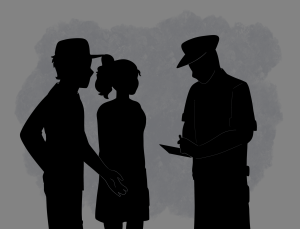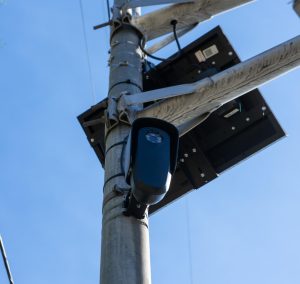Does your Green Dot really matter?
March 18, 2021
“Your Green Dot Matters!” Flyers and posters boast this phrase all around campus. Does it really? Adopted by Whitman in 2009, the Green Dot Bystander Intervention Program has been controversial from the start, and students have been debating its methodology and effectiveness.
Green Dot is a bystander intervention program founded in 2006 that aims to reduce “power-based personal violence” by educating college students on consent and sexual assault. Central to Green Dot are the “3 D’s” of an effective bystander: Direct, Delegate, Distract. It is based on the notion of “green dots,” which represent positive actions that strengthen the culture of consent, and “red dots,” which represent sexual misconduct or behaviors that perpetuate it. If I sound a bit confused on the definitions and functionality of Green Dot, it’s because I am — as are many other Whitman students.
Incoming first years are required to attend several student-facilitated Green Dot workshops during orientation. Yet, after these workshops, students rarely hear about it again. Green Dot representatives claim that it is integral to Whitman culture, citing its prevalence at parties and events, but this assertion doesn’t hold up under scrutiny.
Additionally, the program is explicitly directed towards bystanders and the cultivation of “reactive” and “proactive” bystander intervention, meaning it is not designed with sexual assault survivors in mind. Workshops are presented with upbeat jocularity, relying on acted skits and digestible graphics.
During my orientation workshop, Green Dot representatives role played a few plausible scenarios, complete with the quintessential Brad and Chad antagonists, and laughed their way through cutesy slogans like, “Ask the cutie before you touch the booty!” They seemed to be thoroughly enjoying themselves, while most attendees sat in tense discomfort.
In their apparent efforts to sanitize and simplify sexual violence to make their workshop engaging, Green Dot presenters have missed the complexities of the issue and more importantly, made their space intensely uncomfortable for the survivors in the room. Sexual assault is a charged and complex issue, and inadvertently stripping it of its gravity is a misstep that invalidates survivors and hinders Green Dot’s mission.
A friend of mine spoke to her experience as a survivor of sexual assault and about the mandatory Green Dot workshop: “The whole thing was triggering, so it was kind of counterproductive to anything they set out to do,” she stated, regarding the program as “insensitive” and “out of touch.”
“I was pretty confused by it,” another friend noted. “The tone felt kind of disrespectful. At the end, we were all just like, ‘Okay, where do we go from here?’”
Where do we go from here? By most accounts, Green Dot’s programming does not seem to create safer environments for sexual assault survivors or fundamentally change individual or collective attitudes towards consent. Furthermore, the simplicity of the Green Dot model makes it susceptible to jokes and memes, and detracts from its greater purpose.
Whitman deserves a program in which we can take pride, one that thoroughly examines the complexities of sexual assault and consent and one that provides us with programming that truly educates and validates us — one that enacts tangible change.







Will • May 15, 2021 at 12:13 pm
Lets not kid ourselves. Green dot, at least at Whitman College, serves first and foremost as an opportunity for virtue signaling.